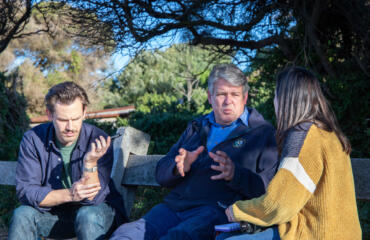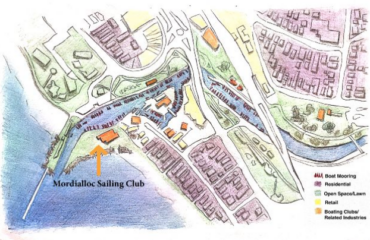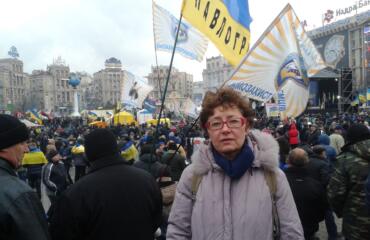Born and raised in Melbourne, Jordan Ta, 20, had never noticed any conflict between his Australian upbringing and his Chinese heritage. But when COVID-19 arrived in January, all that began to change.
The shift was subtle at first, Ta becoming increasingly conscious of sidelong glances from pedestrians as new cases mounted through March. Then one day he was on the tram, sitting among the empty seats. A white lady got on and glanced at him, he recalls, before walking to the other side of the tram which was packed with high school students.
For the first time in his life, he felt targeted because of his race.
Ta’s experience isn’t an isolated case. During the COVID-19 pandemic, the Asian community has faced increasing racial abuse, including both verbal and physical attacks. A July report from the Asian Australian Alliance documented almost 400 racist attacks on Asian Australians between April and June. In September, a new survey indicated almost one third of over 1100 people questioned believed it was Chinese people who created the COVID-19 outbreak in Australia.
Ta has always found Australia inclusive and multicultural, very different to the country his parents faced in the 1980s. He is confident the rise in racism is temporary, but he says it still frustrates and confuses him.

Melbourne born and raised, Jordan Ta has only ever visited his parent’s homeland once in his lifetime, but “I was always interested in my own Chinese cultural background”, he says.
“Chinese Australians are in Australia minding their own businesses and suddenly they are getting grouped together with the Chinese people in mainland China and blamed for this outbreak.”
Ta and his parents followed the reports on racial attacks against Asians closely, recognising that they too could be targeted. “We laid down some precautions that we could follow in order to make ourselves a little bit more safer.”
Ta has only visited China once in his lifetime, for a holiday, but he still feels attacked when he hears people blaming the virus on China. He says it is doubly unfair that Chinese Australians, who are blameless and coping with the stresses of the virus like everybody else, have to suffer persecution into the bargain.
“It doesn’t really matter where [the virus] started, everyone is affected. Don’t blame a certain group of people for it, especially those who have no involvement [with China].”
Growing up as an only child, Ta said he was lucky that unlike his parents, he wasn’t exposed to racism. His parents are both ethnic Chinese, but from different backgrounds. His father is a Hongkonger from Cambodia, and his mother is a Taiwanese raised in Vietnam. They both arrived in Australia around the age of ten and met each other in high school.
They were among only a handful of Asian students at the school and suffered regular verbal and even physical abuse from their classmates.
“During the time, my mom learned how to be extremely strong,” said Ta. “She fought back as well, hit the girls back in self defence.
“And she survived through high school like that with all these sort of racial attacks.”
Amid the unhappy school days, Ta’s father met with his mother. They supported each other as classmates and soon they fell for one another.
After graduation, they started a series of businesses together. These days, they run a printer toner business and an export business selling health products to China. The printing business has exploded in recent months as so many people have started working from home, but COVID-enforced trade restrictions have pushed the exporting business into hibernation.
Ta’s school experience was very different to his parents’. He could embrace both aspects of his identity, kicking the footy at lunchtime and then going to practice the traditional Chinese lion dance after school.
“I was always interested in my own Chinese cultural background,” says Ta.
At age 12 he joined the Chinese Masonic Society lion dance team as its youngest member. He is now one of the team’s senior members and still practices regularly, although training sessions have moved onto Zoom to abide by Melbourne’s strict lockdown regulations.
Since March, Ta has also been doing his university studies online. In his second year of a bachelor of commerce degree at the University of Melbourne, Ta would ordinarily study with his friends on campus, but now he does it all from his bedroom.
He still catches up with friends over Zoom, but misses seeing them in person, and he barely talks to his non-Asian classmates any more.
“Sometimes I feel if I talk to caucasian students, I might be judged or misunderstood because of the media portrayal of the Chinese community,” says Ta.
Despite a talent for science in high school, Ta chose to study commerce because it offered a straight, clear path: study hard, secure internships, graduate, get a job. The turmoil of the pandemic has complicated these plans, but Ta says he is optimistic.
“I think the world will be able to recover.”
He is focusing on maintaining the high marks that will give him an advantage when the time comes to apply for internships and jobs.
Ta also says he is confident the racial tension that arrived along with the virus will slowly dissipate as Australia adapts to the COVID era.
His parents, who have seen this all before, have been more protective than ever. Before the Victorian lockdowns, they would text him at least once an hour whenever he went out. Ta says they are “sweet parents”, but they also worry too much.
“Things will not be 100 per cent the same, but eventually people will go back to what they were doing in the past.”
This project is a result of a partnership between the Guardian Civic Journalism Trust and the Centre for Advancing Journalism at the University of Melbourne. Reporting contributed by: Alyssa Herr, Anthony Marsico, Ashleigh Barraclough, Connor Webster, Else Kennedy, Fia Walsh, Jordyn Beazley, Liam Petterson, Petra Stock, Sean Goodwin, Thomas Phillips and Wing Kuang. Visit the full interactive package co-published with Guardian Australia here.




